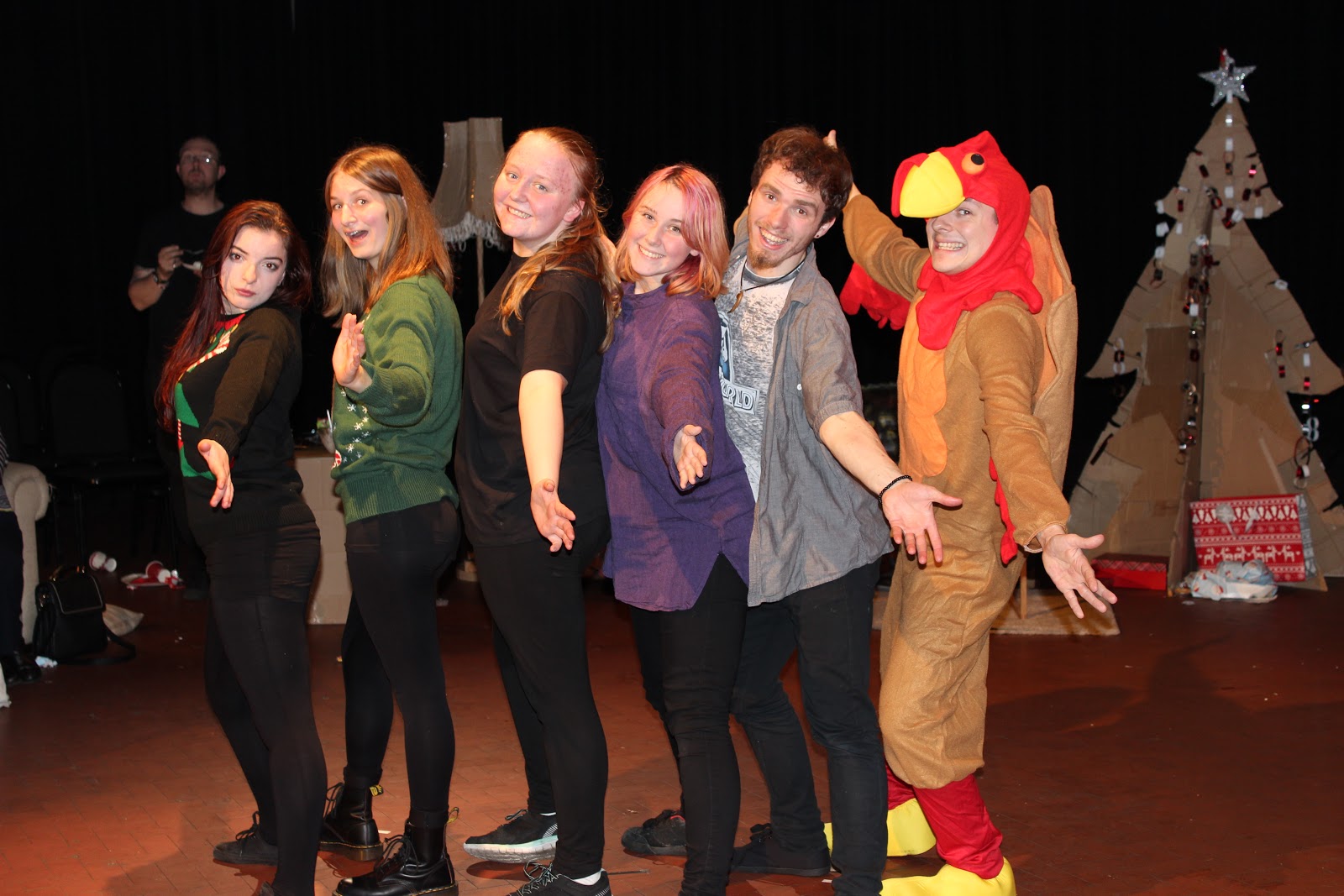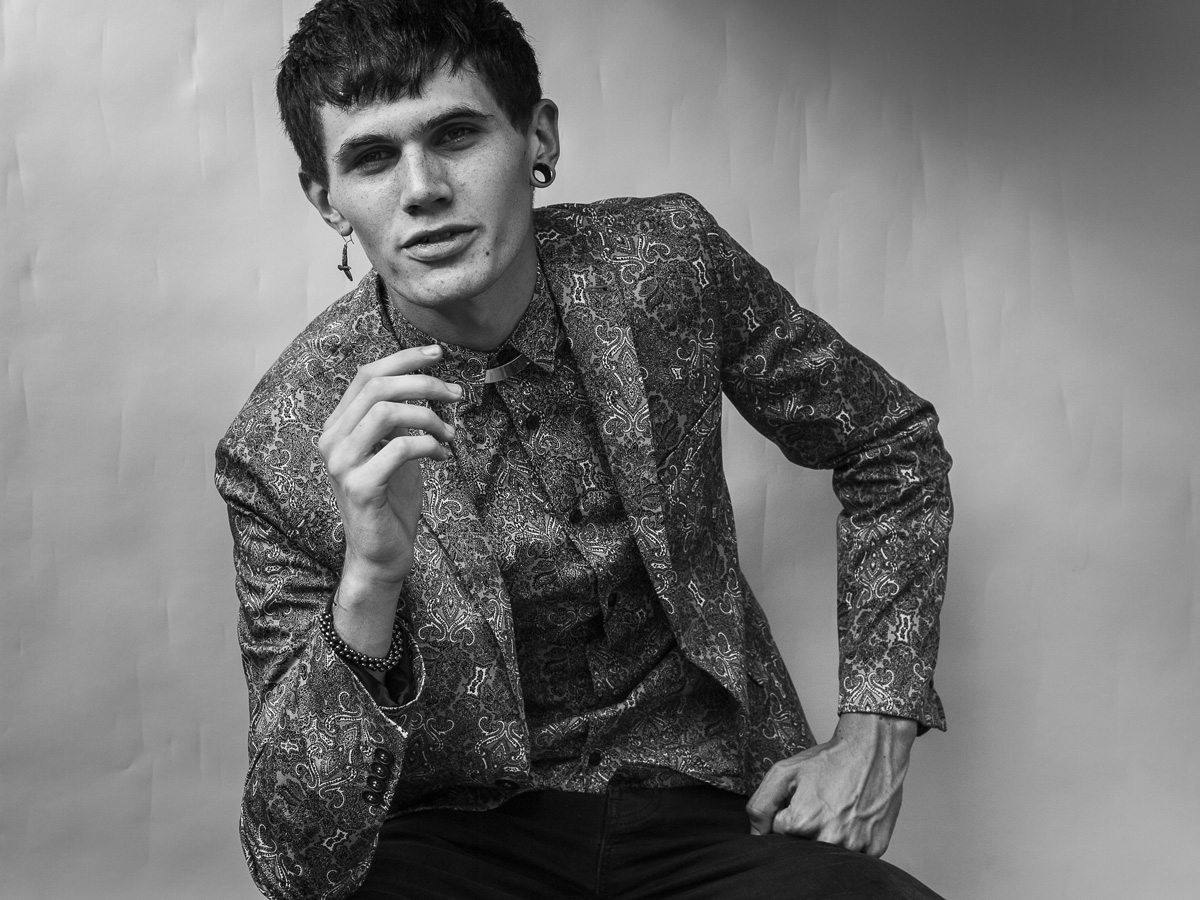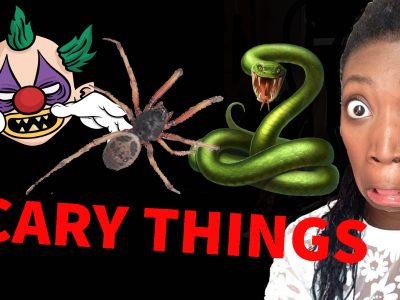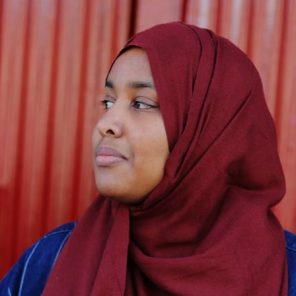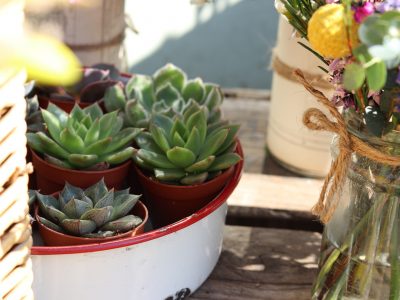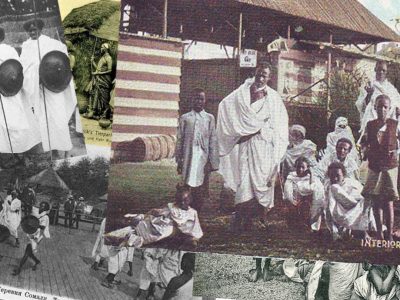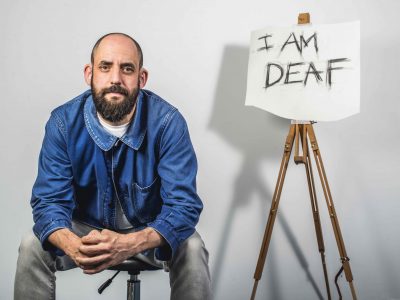I am Judah: an intimate portrait of respected grandfather who was tasered in the face
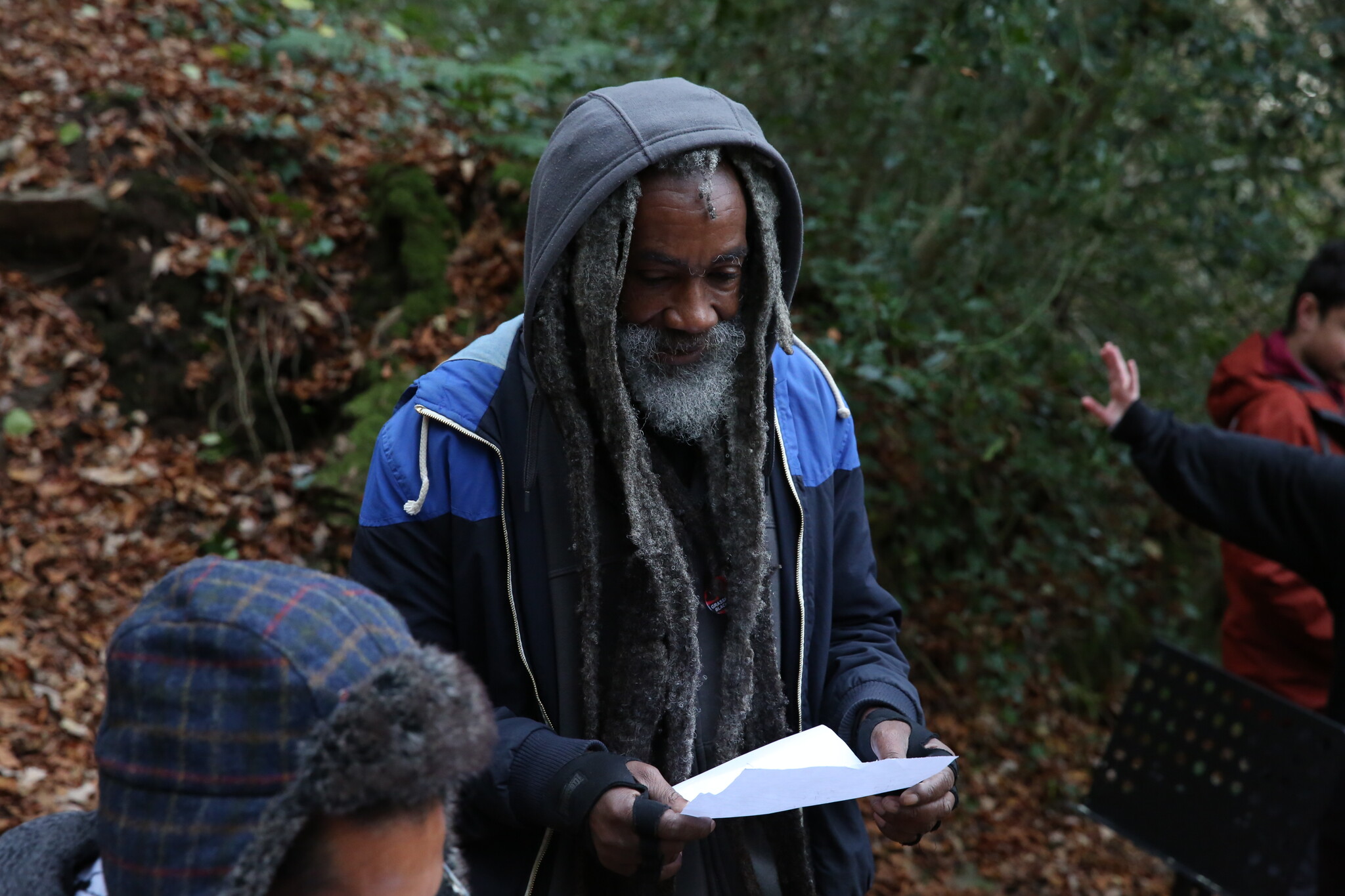
Filmmakers of upcoming film ‘I Am Judah’ discuss their community-centered film and why it is crucial to support projects like it.
Asmaa sat down with director Bashart Malik and producer Zaheer Mamon and spoke to them about their new project ‘I Am Judah,’ a cinematic documentary revealing the true story behind the headlines that broke in 2017 when Ras Judah Adunbi, a Rastafarian elder, was shockingly tasered in the face by Avon and Somerset police officers. Asmaa talks to the filmmakers about how they went about turning this traumatic incident into a film documenting Ras Judah’s life, why community is at the centre of this project and why it is important to support independent projects like this one.
Can you introduce yourself?
Bashrart Malik: And my name is Bashrart Malik, I’m a director and cinematographer. I grew up in Bristol. I spent, seven or eight years in London, doing film, have moved back, and now I’m making the films I want to make.
Zaheer Mamon: My name is Zaheer Mamon and I am working on the I am Judah project as producer.
Could you tell us a bit more about the film?
ZM: Ras Judah is a doting grandfather and highly respected member of his own community, who in early 2017, was shockingly tasered by member of the local police force whilst walking his dog. It was a really horrible incident, and wasn’t the first or last time he was the victim of police brutality. Usually when a police brutality case hits the headlines, the victim is dead. In this case the entire incident was filmed on someone’s phone and he survived it. He’s got an incredible perspective of life and incredible story to tell. The film is about creating an intimate portrait of who he is and what he’s been through, including these incidents but more than that as well. Often when these incidents happen you don’t get an insight into who the victim is – you just get a few headlines and snippets of misinformation. So we’re looking to set a precedent by putting love into making this story into a film. It’s important that people understand who the victim of this type of brutality is, beyond the headlines.
Zaheer, this is your first time producing a film. How have you found that experience?
ZM: A lot of it is having an eye for detail and having a certain mindset where you’re thinking about how you can move the project forward, in terms of structuring it and planning it. What themes can you draw out? Researching Ras Judah, connecting with him and working out what parts of the story would be good to shine a light on has been a steep learning curve but there’s lots of previous experience that I’ve gained that feels like it’s sort of slotting naturally into it. It’s exciting There’s lots of hurdles lots of challenges, but ultimately it’s already been very rewarding and may it continue to be.
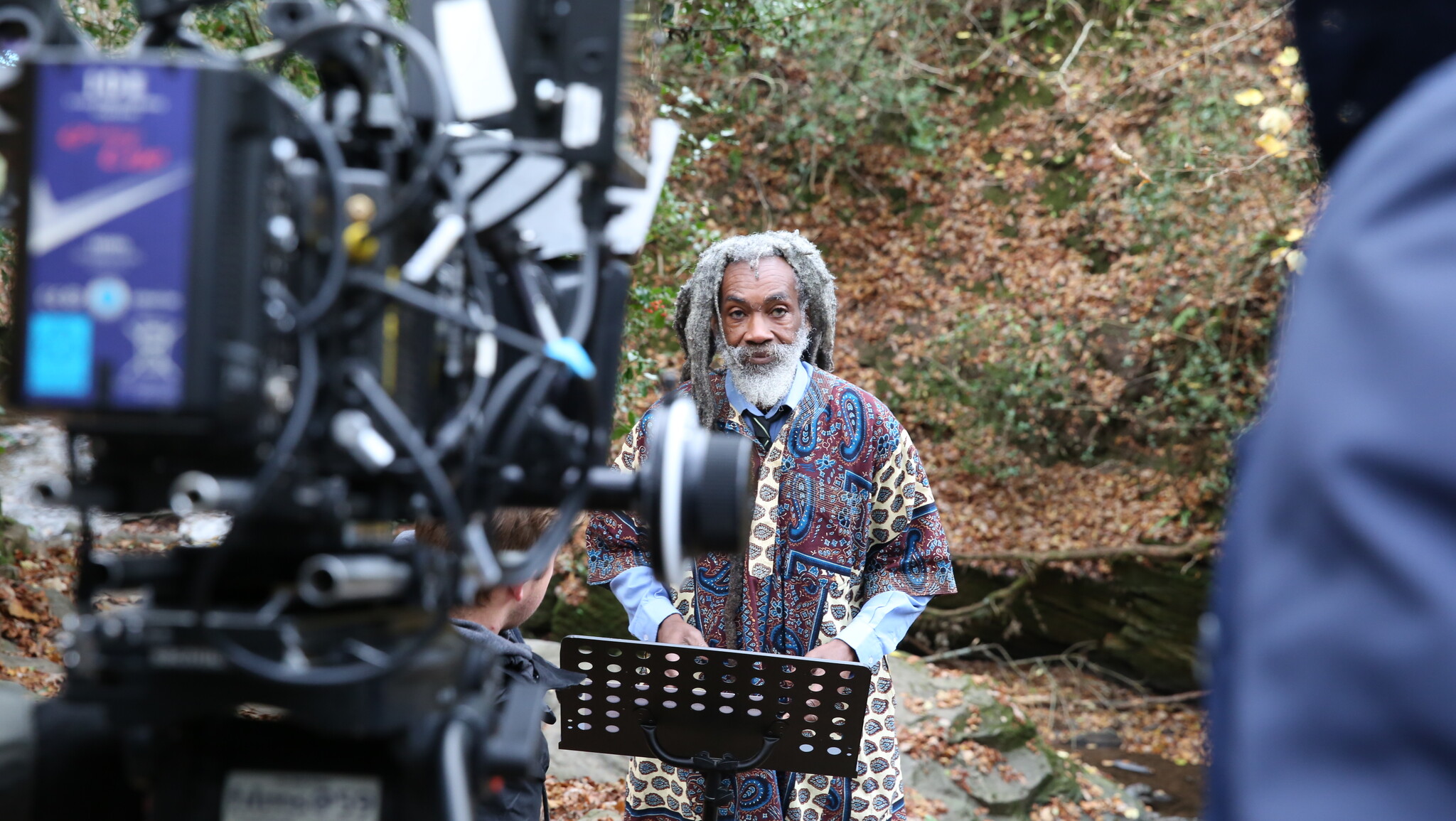
Could you go into the challenges a bit more?
ZM: One of the key ones would be funding. Because we have to keep this film 100% independent – that was the idea from the beginning, that’s why Ras Judah wanted to work with us. Now we’re approaching funding streams and looking for high profile supporters as well. We’re taking the film back into production and fundraising at the same time, to get finished as soon as we can. I’d say that’s the number one hurdle. We will get there one way or another. A lot of the other challenges stem from that as well – how do you make things happen on a low-budget? You’ve got to be very creative and go the extra mile. You might be understaffed, but that’s part of the fun of it as well.
Has there been anything that has been absolutely crucial to include?
BM: I think it’s key that we show not just the incident but more than that. That’s what the film delves into. You watch it and you really get to know who the person is and the environment they exist in, including different time zones in someone’s life. I think we’ve really captured the essence of who Ras Judah is, and the chapters in his life, and that’s what the film is about. We’re going to showcase that using the best possible production value.
I know that you are including some spoken word in the film – could you talk about what it has been like collaborating with a poet?
BM: For me, the addition of using poetry widens the meaning. It’s not just about making a conventional documentary, it’s about making it deeper. I don’t know if spiritual is the right word, but when you start diving into writing and poetry, you experience something more than visual representation. Adding poetry to film adds a whole different layer of understanding – it’s more than just first-person verbatim and lets us expand the visuals and ways to communicate meaning.
ZM: I definitely echo that it adds a real richness and texture to this film. Laurence Hoo’s poetry is activism, the social commentary in his poetry is powerful, and it feels like a very natural choice for this film. He’s also a good friend of Ras Judah. His work slots in very neatly and reinforces what Ras Judah is saying. Even Ras Judah’s reflections and musings are very poetic, tying in with Laurence Hoo’s spoken word.
Why is it important for people to support this film?
ZM: This film is more than a film – it’s a community owned project. So many people are getting behind it because they care about Ras Judah and understand what he’s has been through. We need to keep it independent and we really need people’s help – people who feel strongly about all victims of racial profiling and police brutality. This goes way beyond the UK as well, so for anyone that cares about shining a light on these issues this is for you. We don’t want to go to big institutions or try and sell it to a mainstream broadcaster and risk it being censored. We need to keep this independent and grassroots.
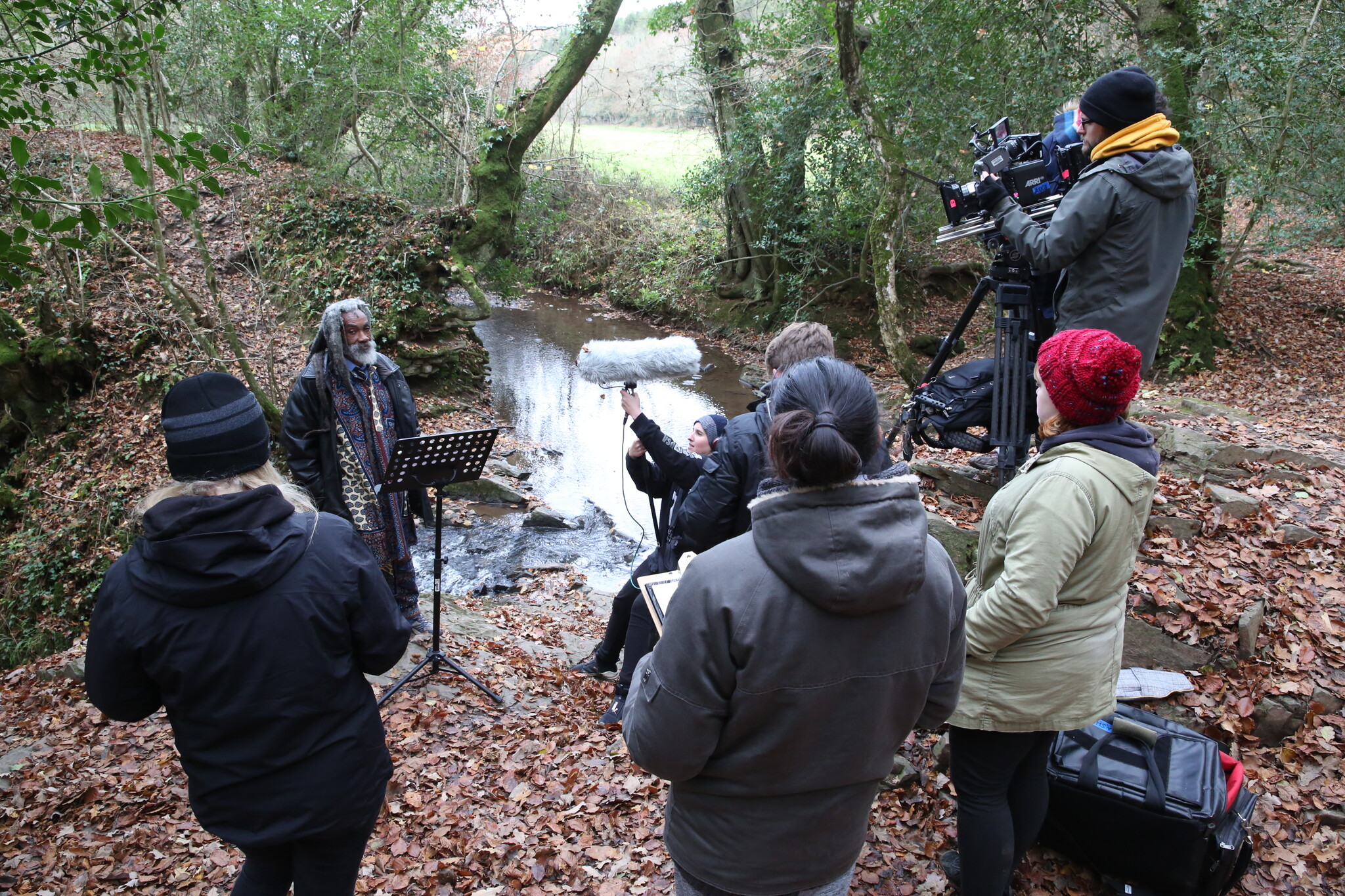
You mentioned earlier that community is important in making this film. Could you go into why that is?
BM: Community is at the forefront of the focus for I am Judah and why we’re making it. Community is neglected nowadays – we’ve forgotten everyday people. We’re forgetting who we are, we’re forgetting where we come from. The technology is developing at speed and our need to connect to a fast-paced world means we don’t really protect culture and identity anymore. Usually, online representations are not who we are. So organically, the reason why we’re making I am Judah, is to bring people together.
ZM: Definitely, and I’d say that this is all of our injustices, no matter what their colour or creed – an injustice is an injustice. And Ras Judah is such a respected figure in the local community he lives in. Many people that have watched that footage of the tasering incident wouldn’t actually know that. They might have read little snippets of it, but they wouldn’t really know if they’re outside Ras Judah’s local community. If you walk around the streets with Ras Judah – the amount of people he knows, the amount of love he gets, the vibes he’s got with his neighbours, and people in his wider community – it’s incredible. It’s a beautiful thing that goes way beyond these racial divisions. He’s not judging people on the basis of the colour of their skin. We hope that we can really communicate some of those values in the film.
How has the community responded to this film?
BM: The community response has been very inspirational. They’ve fully supported it. They’re behind it, either by sharing the campaign or donating. They want the film to be made and they feel empowered. They want to be a part of it. And that, for us, is the best result possible. We’ve had response and support from the US from Australia, Africa. I’ve also been in contact with a Jamaican artist who I can’t name yet, because I’d like to use one of the songs that he’s produced for the film. So it’s not just a Bristol film, it’s a film for the global community. The response has been phenomenal we’ve empowered people around the world and couldn’t have asked for more. We’re also bringing Bristol mayor Cleo Lake into the film during the summer.
Is there anything else that you’d like to tell our readers?
BM: The real strong message that’s coming from this project to young people is to just be yourself. You don’t have to fit into a box. You can do something from a place of integrity and a place of honesty, and when you believe in that vision you can make it happen – the right people will come along. So stop fretting about having to pander to the system. Find what you really believe in, what really motivates you, what passion you have and take it forward. This film is shining a light on some really uncomfortable issues that a lot of mainstream broadcasters probably wouldn’t want to touch but that didn’t stop us from taking it forward.
Sometimes I think we get stuck in where we live and where we hang out, and all we end up doing is making the same films representing the same visuals. Once they’ve seen I am Judah, I hope that they feel inspired to step away from Easton, St. Paul’s, Hartcliffe, Knowle West, wherever. I’m talking about leaving our concrete jungle and exploring the world, because there’s a bigger world out there. There are ways of telling our stories and not just basing it on a couple of areas and shooting the same films and making the same narratives. I want it to be something that pushes the boundaries and empowers the next generation.
What are the next stages of the film?
BM: We’ve gone back into post production and we’ll be doing that throughout July. In August that we go into the sound production and grading which will continue into September, and the film should be in a very good shape for us to think of completion by then. And all our partners again, Screenology, Bristol Cable, Ujima, BCfm, and not forgetting the amazing community who have donated – we’ll be keeping in contact with them.
Have something to say? Tell us on Facebook, Twitter and Instagram

